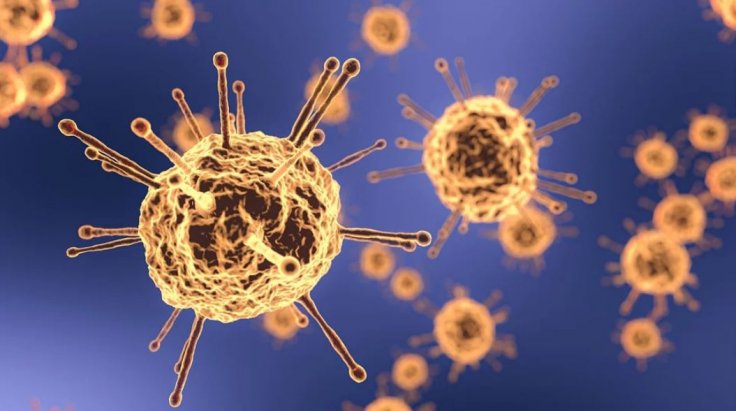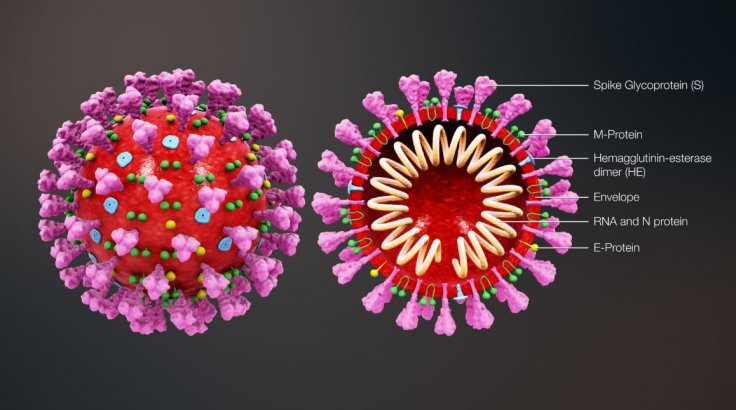Finding a cure or a vaccine for the deadly COVID-19 is undoubtedly one of the biggest medical challenges of this century. While scientists across the world work round the clock to find the elusive cure, an international team of researchers claims that a trial drug could turn the tide now.
In the study published in Cell, scientists suggest that a trial drug called APN01 or human recombinant soluble angiotensin-converting enzyme 2 (hrsACE2) can block the cellular entrance that SARS-CoV-2 uses to attack cells. The scientists found that the drug reduced the viral load in human cell cultures and human replica cells known as organoids.
"We are hopeful our results have implications for the development of a novel drug for the treatment of this unprecedented pandemic," said Josef Penninger, co-author of the study, in a statement.

How the coronavirus attacks cells
Several studies on SARS-CoV-2 have found that the virus gains entry into human cells --especially lung cells — by binding with angiotensin-converting enzyme 2 (ACE2) receptors in patients infected with the disease. This mechanism is similar to that of the SARS-CoV virus which causes Severe acute respiratory syndrome (SARS).
The COVID-19 causing virus has a strong genetic resemblance to the SARS virus. "The virus causing COVID-19 is a close sibling to the first SARS virus," said Penninger. In earlier studies, Penninger's team had linked the protein to both lung failure and cardiovascular disease. "Our previous work has helped to rapidly identify ACE2 as the entry gate for SARS-CoV-2, which explains a lot about the disease, he added.
Demonstrating the entry mechanism
The researchers cultivated the SARS-CoV-2 virus by isolating it from the tissue sample obtained from a COVID-19 patient. Through the cell cultures, they were able to demonstrate how the potent spike protein of the coronavirus was able to bind with ACE2 in order to gain entry into human cells.

However, the scientists wanted to explore the possibility of preventing the virus from infecting cells. Therefore, they decided to add a genetically modified variant of the ACE2 protein known as hrsACE2.
Significant reduction in viral load
It was found that in cell cultures used in the study, hrsACE2 was able to inhibit the growth of the SARS-CoV-2 by a factor of 1,000-to-5,000. To test if these results hold good in real human cells, the researchers used organoids grown from human stem cell—replicas of cells from the kidneys and human blood vessels—and found that it showed the same effect.
The results, however, were dose-dependent, meaning it differed depending on the total number of viruses in correspondence to the total number of hrsACE2. Also, clinical-grade hrsACE2 was found to reduce the infection in organoids.

Luring the virus away from cells
Ali Mirazimi, co-author of the study, explained that it is likely that the addition of hrsACE2 confounds the virus into attaching itself to the copy instead of attacking the actual cells. "It distracts the virus from infecting the cells to the same degree and should lead to a reduction in the growth of the virus in the lungs and other organ," he illustrated.
The study also provided vital data on the progression of the disease, and on how in acute cases of the infection, patients suffer from multi-organ failure and cardiovascular damage. "Our study provides new insights into how SARS-CoV-2 infects the cells of the body, including in blood vessels and kidneys," added Mirazimi.
A novel treatment option
As of now, there are no clinically proven treatment or antiviral therapy specifically targeting SARS-CoV-2 action on ACE2. This is where the drug can play an important role. "Now we know that a soluble form of ACE2 that catches the virus away, could indeed be a very rational therapy that specifically targets the gate the virus must take to infect us," said Penninger, co-author.
Currently, the study is confined only to cell cultures and organoids. Nevertheless, Aperion Biologics, the biotech company that manufactures APN01, intends to conduct a clinical pilot study among patients infected with the coronavirus in China. The researchers point out that the current study only analyzed the effect of the drug in the initial phases of the infection and further research was required to ascertain its effects in later stages of the disease.









